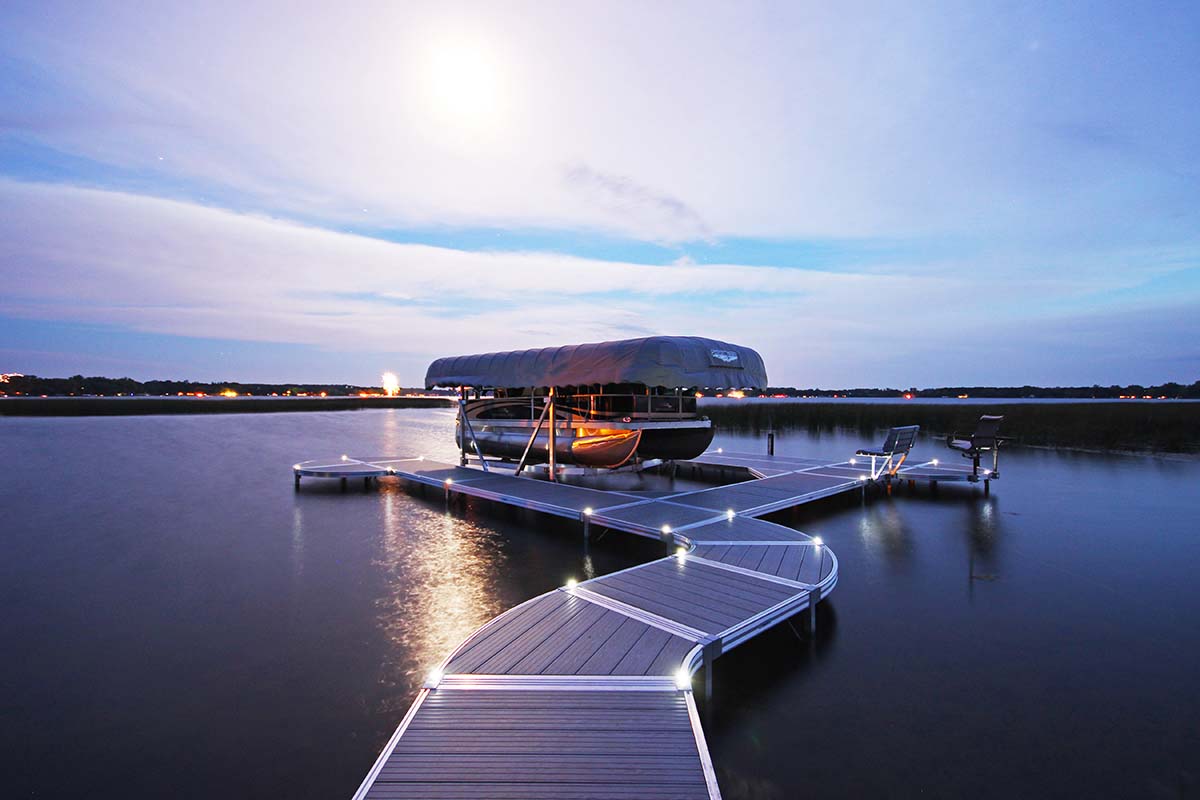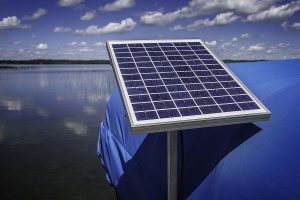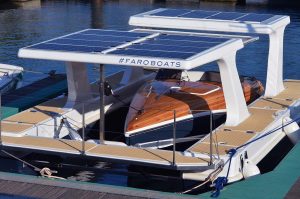
Solar Power and the Future of Recreational Boating
Published on November 9, 2023The marine industry has long been a leader in finding ways to use innovation and progress by adapting to changes in the business landscape. The emergence of solar energy in this sector is not just a ray of hope but a significant transformation that promises economic and environmental benefits. As the world seeks to find cleaner energy solutions, several businesses are keeping pace.
Companies like ShoreMaster and Faroboats are making waves through newly introduced products or re-imagined ways of bringing power to the boats that provide services designed to enhance sustainability and efficiency. These products are changing the way industry leaders view boat maintenance and power.
Growing Possibilities
ShoreMaster, a leading manufacturer of boat lifts and docks, has long recognized the potential of solar energy in the marine sector. They offer a wide range of solar products tailored primarily to individual boat owners, mainly in the northeastern part of the United States. A merger with Hydro-Hoist LLC in Oklahoma and the acquisition of Neptune Boat Lifts in Florida brought three distinct market leaders together under the umbrella of Waterfront Brands. As they grow, they are leaning into increasing solar possibilities through their partners in retail distribution.

“ShoreMaster has been offering solar products for more than 37 years,” said Gary Haffley, customer support team manager for Waterfront Brands, the parent company of ShoreMaster. “In the northern tier, they must pull everything out of the water in the winter so those mostly use solar power. But I think solar is growing across the country. Since the merger of ShoreMaster and HydroHoist, solar power has been a hot topic for other types of docks and lifts like the big permanent dock structures you see in the southern part of the country.”
Solar panels for individual docks tend to be 12 volt with one battery but are available in 24 volt for larger set-ups. While both are simple to install, and their quality has gotten better over the years, perhaps the best part of a solar panel is the consistency.
“They really don’t need any maintenance,” said Haffley. “If you have winds strong enough to damage one then you have bigger problems. But you typically don’t need to maintain them at all.”
Haffley said that in the United States, complete conversion to solar power isn’t likely for marinas – for now. “While there has been a push toward that, it hasn’t quite taken hold but may happen in the future.
Harnessing the power of the sun is not a new concept, but its integration into the marine industry has taken significant strides in recent years and is an ever-evolving project. Through photovoltaic solar panels, electricity is generated to power various systems and equipment on board, reducing the reliance on gas and minimizing carbon output, a growing concern across the globe.
Sustainable Solutions
Faroboats in Lisbon, Portugal, is at the forefront of efforts to change the environmental impact of the marina industry while designing and producing sleek and sustainable solutions for leisure boating. They unveiled Powerdock, the world’s first floating solar dock earlier this year and according to Luis Marinho Falcao, head of Communications & Sustainable Growth, the response has been positive and interesting.

“At first, people were stunned because it looks like a spaceship and it’s the first in the world,” he said. “We’ve had lots of coverage from specialized press from Australia to Thailand, literally around the globe.”
The Powerdock is designed for the Faro5 runabout electric boat. In addition to charging the boat in less than three hours, Powerdock can raise it completely out of the water using an oversized pillow-like lift.
While electric boats are common throughout Europe, Marinho Falcao confirmed growth will be slower to come in the United States, but when it does it will be fast, so they are planning carefully. While they can take small individual orders from the United States now, their goal is to make them available in late 2024. Into 2025, they will produce and offer floating docks for boats up to 30 feet in length. Even for those with gas powered vessels, conversion to electric or hybrid is an option.
“The thing about the PowerDock is it’s a solid little toy that has the batteries inside of it completely isolated but ventilated,” he said. “It’s essentially a power bank that floats. We often ask ourselves, ‘why didn’t somebody think of this before’”?
While Faroboats is firmly committed to bringing cleaner energy into the boating world, Marinho Falcao is quick to acknowledge that there is work to be done on the back end of the solar industry.
“We are quite aware of environmental costs associated with mining lithium and especially for battery disposal,” he said. “We are constantly abreast of changes and there are some very interesting things happening with graphene and other alternative raw materials for larger capacity batteries. The appropriate recycling of batteries is a must. We are in contact with universities – some in the United States – that are experimenting with new solutions using Graphene. These batteries seem to be the future.”
As the marine industry embraces solar energy, the future looks promising. Solar-powered boats are not only easier on waterways, but cost-effective in the long run. With companies like ShoreMaster and Faroboats leading the way, solar-powered vessels and accessories are becoming more accessible and efficient. Solar energy stands out as a bright and promising solution for cleaner and more sustainable lakes and oceans.
| Categories | |
| Tags |





